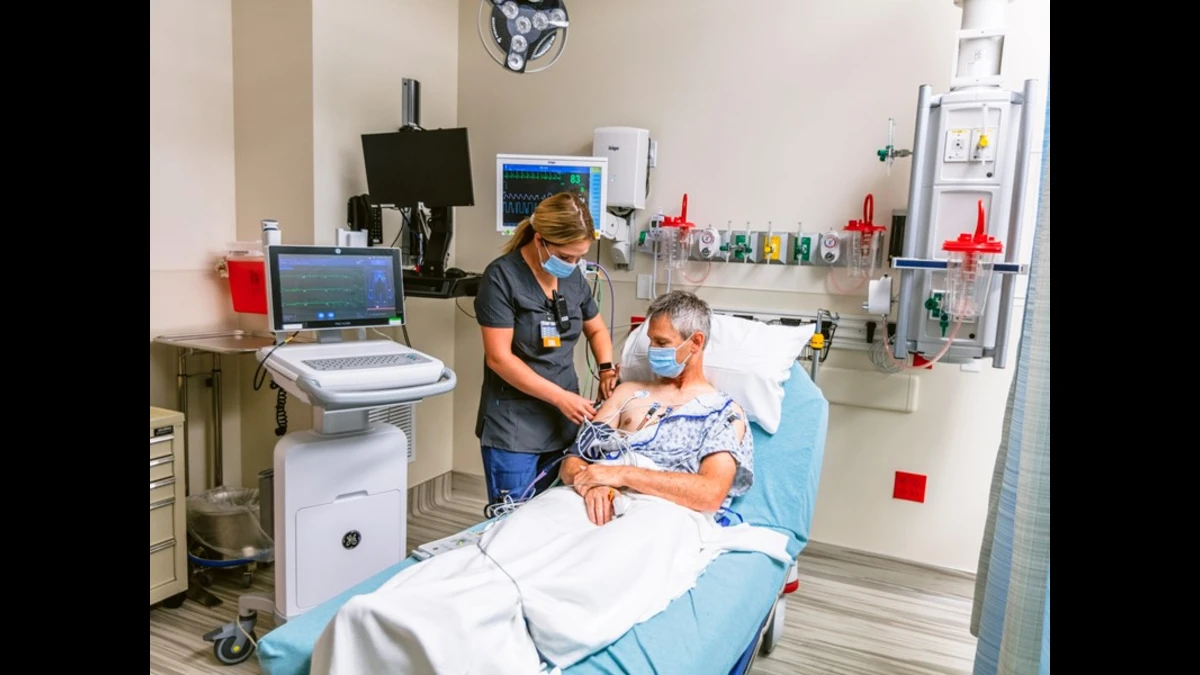Introduction to the Role of ER Tech
Welcome to the fast-paced world of emergency medicine, where every second counts and lives hang in the balance. In this dynamic environment, a team of dedicated professionals works tirelessly to provide immediate care and support to those in need. While doctors and nurses often take center stage, there is another crucial player on the front lines of patient care – the ER tech.
In this blog post, we will explore ER techs’ integral role in improving patient outcomes and enhancing the overall quality of care in emergency departments. From their responsibilities and duties to their impact on patient well-being, we will delve into all aspects of this vital healthcare profession.
Responsibilities and Duties of an ER Tech

ER techs play a crucial role in the fast-paced environment of the emergency department. Their responsibilities are diverse and demanding, requiring them to be adaptable, organized, and compassionate.
One primary duty of an ER tech is to assist healthcare professionals in providing immediate care to patients. They may take vital signs, collect specimens for testing, and perform basic medical procedures such as wound cleaning or splinting. This hands-on involvement is essential for ensuring efficient patient flow and effective treatment.
The Importance of ER Techs in the Emergency Department
ER, techs play a crucial role in ensuring efficient and effective care for patients in the emergency department. These dedicated professionals are often the first line of defense when providing immediate medical assistance to individuals who require urgent attention.
One key aspect of their importance lies in their ability to assist with triage, where they can assess patients’ conditions and prioritize treatment based on severity. This helps ensure that those with life-threatening injuries or illnesses receive prompt care, potentially saving lives.
How ER Techs Improve Patient Care and Outcomes
ER techs are crucial in improving patient care and outcomes in the emergency department. Their presence and expertise help streamline processes, enhance efficiency, and provide immediate patient assistance.
One way that ER techs improve patient care is by assisting with triage. They help prioritize patients based on the severity of their condition, ensuring that those who require urgent attention receive it promptly. This helps prevent delays in diagnosis and treatment, ultimately leading to better patient outcomes.
In addition to triage, ER techs assist with various medical procedures such as wound care, splinting fractures, or EKGs. By being trained in these tasks, they can alleviate some of the workload from nurses and physicians, allowing them to focus on more complex cases. This collaborative approach enhances overall patient care by ensuring that each task is performed efficiently and effectively.
Challenges Faced by ER Techs and How to Overcome Them
Working as an ER tech has its challenges. These dedicated professionals face a variety of obstacles daily. Still, with the right mindset and strategies, they can overcome them to provide the best possible care for patients in the emergency department.
One common challenge for ER techs is dealing with high-stress situations. The fast-paced nature of the emergency department means that techs are constantly faced with urgent and critical cases. This can be mentally and emotionally draining, requiring them to stay focused and composed under pressure. To overcome this challenge, ER techs need to practice self-care techniques such as deep breathing exercises or taking short breaks when needed.
Another challenge is maintaining effective communication within the healthcare team. ER techs often work closely with nurses, doctors, and other staff to deliver coordinated care. However, miscommunication or lack of clear instructions can lead to errors or delays in patient treatment. To address this challenge, ER techs should prioritize active listening skills and ask clarifying questions when necessary.
Education and Training Requirements for Becoming an ER Tech
Becoming an emergency room (ER) technician or tech requires specific education and training. While the exact requirements may vary depending on the healthcare facility and state regulations, aspiring ER techs must possess specific fundamental qualifications.
A high school diploma or GED is the minimum educational requirement to enter this field. However, many employers prefer candidates who have completed post-secondary coursework in subjects such as anatomy, physiology, medical terminology, and emergency medicine.
Career Opportunities for ER Techs
ER, techs play a crucial role in the emergency department, providing essential support to medical professionals and ensuring patients receive prompt and effective care. But what career opportunities are available for those looking to pursue a career as an ER tech?
One option is to become a certified emergency medical technician (EMT). EMTs have extensive training in pre-hospital care and are often the first responders on the scene of emergencies. They provide initial assessment and treatment to patients before they reach the hospital.
Another opportunity is to advance your career by becoming an emergency room nurse. With additional education and training, ER techs can transition into nursing roles within the emergency department. This allows them to take on more responsibilities, such as administering medication, performing assessments, and collaborating with physicians.
Conclusion
ER Techs are crucial in improving patient care and outcomes in the emergency department. With their diverse responsibilities and skills, they are the backbone of efficient and effective healthcare delivery during critical moments. From assisting with medical procedures to providing vital support to patients and healthcare professionals, ER Techs significantly impact the overall quality of care provided.
By ensuring timely interventions, monitoring patient vitals, and maintaining accurate documentation, ER Techs contribute to better patient outcomes. Their ability to work under pressure and respond quickly to emergencies makes them invaluable healthcare team members. Patient satisfaction is also enhanced through their compassionate approach and provision of comfort during challenging situations.










